
Amada más que nunca is the seventh studio album by Mexican pop singer Daniela Romo. This album was released on 1991. The album received a Grammy Award nomination for Best Latin Pop Performance, which it lost to Vikki Carr's Cosas del Amor; and was also nominated for Pop Album of the Year at the Lo Nuestro Awards of 1992 and it is her most successful album to date.
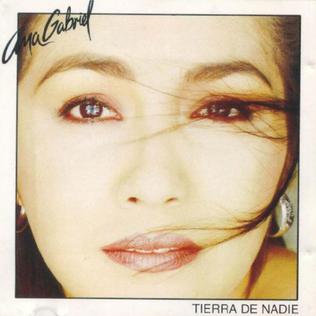
Tierra de Nadie is the fourth studio album by Mexican pop singer Ana Gabriel. It was released in 1988. She achieved international recognition with this album and it reached number one on the Billboard Latin Pop Albums staying in the chart for 73 weeks. It sold four million worldwide. The album was given a Premio Lo Nuestro award for "Pop Album of the Year" in 1990.

Quién como tú is the fifth studio album by Mexican pop singer Ana Gabriel. It was released on November 17, 1989. The album was nominated to the Grammy Award for Best Latin Pop Album in 1990, but lost to José Feliciano's ¿Por Qué Te Tengo Que Olvidar?. The album was awarded "Pop Album of the Year" at the 1991 Lo Nuestro awards. The album reached number one in the Billboard Latin Pop Albums staying in the chart for 48 weeks.
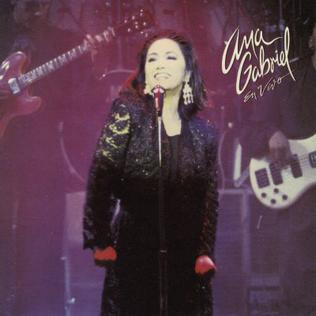
En Vivo is the sixth album by Mexican pop singer, Ana Gabriel. It was released on 1990. This album reached No. 1 in the Billboard Latin Pop Albums. It has sold 4,3 million worldwide, so far, this made her the first female singer in Spanish language in concert to accomplish that. This was her first live material and was nominated for Pop Album of the Year at the Lo Nuestro Awards of 1992.

Silueta is the 8th studio album by Mexican pop singer Ana Gabriel. It was released in 1992. This material was produced by herself and Max Pierre.
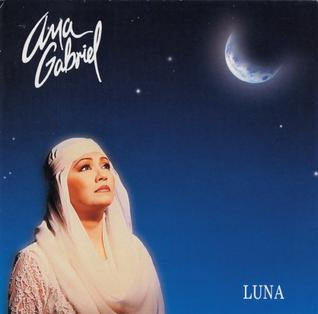
Luna is the 9th studio album by Mexican pop singer Ana Gabriel. It was released on November 9, 1993. This material was produced by herself.

Vivencias is the twelfth studio album by Mexican pop singer, Ana Gabriel. It was released on 1996. This material was produced by herself.

Con un mismo corazón is the 13th studio album by Mexican pop singer Ana Gabriel. It was released on 1997. This material was produced by herself. Nine out of the 12 tracks were written by Gabriel herself, and these songs follow her typical way of lyrics about heartbreak and abandonment already established by composers like José Alfredo Jiménez. In fact, Gabriel covered one of Jimenez's songs with verve. The darkly toned "Me Equivoqué Contigo" shows the singer meeting the erroneous man at the altar of the church. It has the duet with the thunderous-voiced Vicente Fernández. Her delightfully raspy voice has never found a better companion. It was nominated for Regional/Mexican Album of the Year at the 10th Lo Nuestro Awards.

Soy como soy is the 15th studio album by Mexican pop singer, Ana Gabriel. It was released on 1999. This material shows her firmly planted in the pop music, guided by the masterful hand of producer Emilio Estefan Jr. Gabriel composed some of the songs, with collaborations by Estefan himself, as well as renowned pop composer Kike Santander. It was recorded at Crescent Moon Studios, Miami, Florida.
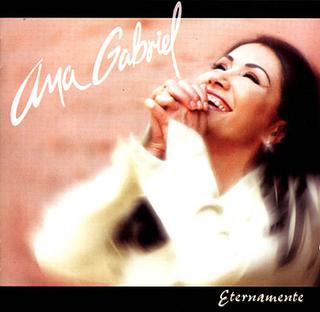
Eternamente is the 16th studio album by Mexican pop singer, Ana Gabriel. It was released in 2000. This material shows a nostalgic Ana Gabriel where she pays tribute to the Bolero's fathers Los Panchos and Los Diamantes. It was recorded at Sony Studios, Mexico.

Huelo a soledad is the 17th studio album by Mexican pop singer Ana Gabriel. It was released in 2001. This album was nominated for Female Pop album of the Year in the Billboard Latin Music Awards, but lost to Jaci Velasquez's Mi Corazón.
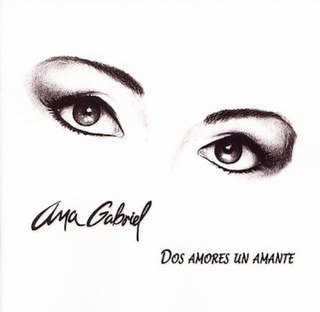
Dos amores un amante is the 20th studio album by the Mexican pop singer, Ana Gabriel. It was released in 2005. It was produced by herself. It was nominated in the category of Female Latin Pop Album Of The Year in the Latin Billboard Music Awards of 2007, but lost to Paulina Rubio's Ananda.

Historia de Una Reina is a compilation album by the Mexican pop singer, Ana Gabriel. It was released in 2005. It was nominated to Latin Greatest Hits Album Of The Year in the Latin Billboard Music Awards of 2006, but lost to Marco Antonio Solís La Historia Continúa... Parte II.
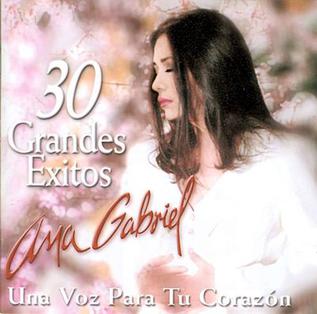
Una Voz Para tu Corazón – 30 Grandes Éxitos is a compilation album by the Mexican pop singer, Ana Gabriel.
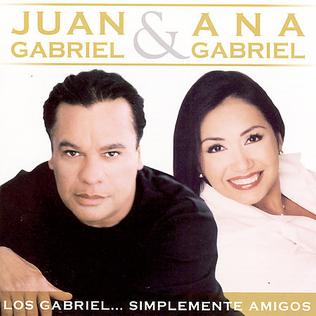
Los Gabriel… Simplemente Amigos is a compilation album by the Mexican singers Ana Gabriel and Juan Gabriel. It was released in 2007 under the label of Sony BMG Latin.

Los Gabriel: Para ti is a compilation album by Mexican singers Ana Gabriel and Juan Gabriel. After the success of the romantic album Los Gabriel… Simplemente Amigos, edited in 2007, and Los Gabriel: Cantan a México regional genre cd, edited in 2008, Sony BMG Latin presents a package of this two collections.
"¡Ay, Amor!" is a ballad written and performed by Mexican singer-songwriter Ana Gabriel and produced by Mariano Pérez Bautista. It was released as the first single from her third studio album, Pecado Original (1987). This song became the second to spend 14 consecutive weeks at number one in the Billboard Hot Latin Tracks chart, after fellow Mexican singer Daniela Romo with "De Mí Enamórate", being surpassed in the same year by Yuri when her single "Qué Te Pasa" achieved sixteen weeks at the top of the chart.
"Qué Te Pasa" is a dance song written by J.R. Florez and Gian Pietro DiFelissati, produced by Felissatti and performed by Mexican singer Yuri. It was released in 1987 as the first single from her seventh studio album Aire (1987), and became her first number-one single in the Billboard Hot Latin Tracks chart and won the Lo Nuestro Award for Pop Song of the Year in 1989.
"Hasta Que Te Conocí" is a song written, produced, and performed by Mexican singer-songwriter Juan Gabriel. It was released in 1986 as the third single from his studio album Pensamientos. In the song, the protagonist learns the meaning of suffering after meeting a lover who mistreats him. It peaked at number two on the Billboard Hot Latin Song chart. A live version of the song was included on his album En el Palacio de Bellas Artes (1990) which peaked at number ten on the Hot Latin Songs chart.
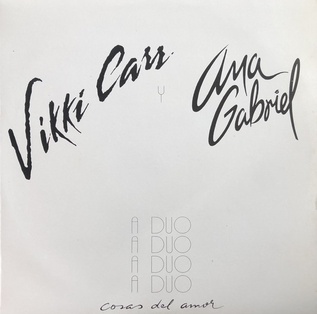
"Cosas del Amor" is a song by American recording artist Vikki Carr and Mexican singer-songwriter Ana Gabriel. It was released as the lead single from Carr's studio album Cosas del Amor (1991). Written by Roberto Livi and Rudy Pérez, the song portrays the relationship between two friends and confidences between both due to marital problems of one of them.

















